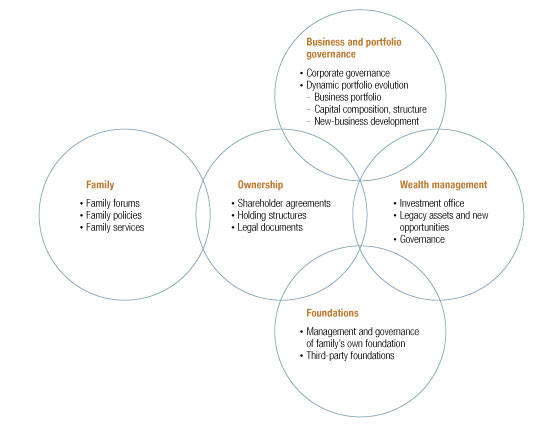As family businesses expand from their entrepreneurial beginnings, they face unique performance and governance challenges. The generations that follow the founder, for example, may insist on running the company even though they are not suited for the job. And as the number of family shareholders increases exponentially generation by generation, with few actually working in the business, the commitment to carry on as owners can’t be taken for granted. Indeed, less than 30 percent of family businesses survive into the third generation of family ownership. Those that do, however, tend to perform well over time compared with their corporate peers. Their performance suggests that they have a story of interest not only to family businesses around the world, of various sizes and in various stages of development, but also to companies with other forms of ownership.
To be successful as both the company and the family grow, a family business must meet two intertwined challenges:
- achieving strong business performance and
- keeping the family committed to and capable of carrying on as the owner.
- harmonious relations within the family and an understanding of how it should be involved with the business,
- an ownership structure that provides sufficient capital for growth while allowing the family to control key parts of the business,
- strong governance of the company and a dynamic business portfolio,
- professional management of the family’s wealth, and
- charitable foundations to promote family values across generations.

